The untold origin story of Creative Assembly
"I decided this kettle had to die."
A school gym in England, mid-'90s, and two local rugby players await orders. One is small and wide and called Adrian, and one is tall and weighs about 20 stone. He's Big Dave. Adrian has been getting flattened by Big Dave all day but he keeps getting back up. It's the rugby training in him: you bloody well get back up if you're knocked down. But this instinct is starting to annoy the people he's in the school gym for, the people making the sports game. They're trying to motion-capture for a rugby game and would rather Adrian lay still. They should be careful what they wish for.
Adrian and Big Dave can't replicate high tackles because they're dangerous: plough into someone above the shoulders and you could kill them - how 6'4" Big Dave has managed not to do this to 5'8" Adrian already I don't know. But the game makers want high tackle motion capture. What to do? They have a lightbulb moment, a Blue Peter moment, and shoot off to the local Millets camping shop in Slough, home of grey British comedy The Office, to buy camping mats and rope for a homemade harness. A harness for Adrian. A harness with a rope Big Dave will pull to simulate a high tackle. They give it a shot.
Big Dave is Adrian's friend so he takes it easy on Adrian the first time round and barely yanks him off his feet. This annoys the man in charge of the company making the sports game. "No no no!" he blurts in a blunt and cockney manner. "Come on, give it some stick will you!" He makes Adrian run faster and Big Dave pull harder. And this time Adrian looks like he's been hit by a bus: he flies back off his feet and lands flat on his back - and doesn't get straight back up. He just lies there.
"Fucking hell," he finally says. "I ain't doing that again."
These memories belong to an unlikely place, a ginormous studio that is very different today. Back then there were only a handful of people and they made sports games for EA, but these days they win awards for Alien: Isolation and Total War. On the week Total War: Warhammer 2 is released I turn the dial back to a time before Total War, and uncover a forgotten history in Creative Assembly, the early days.
"The aim was earning a living," says Tim Ansell. There were no dreams of strategy epics and no dreams of blockbusters. In those days people wanted PC ports of Spectrum and Mega Drive games, and they wanted 23-year-old Ansell, apparently the only person in the country capable, to make them. Never one to turn down work he set to work. In 1987, his Creative Assembly was born.
For two years he worked alone in the spare bedroom of his house, happily steaming through whatever he could take on. He was the industrious, get-it-done type. But he could sense a change coming. He could sense the time of one-man bands - programmers making companies so they could write 'managing director' on business cards - coming to an end. "It's like mate, you work for yourself, on your own, but anyway."
Somewhat reluctantly he found an office and hired help, and he began picking up regular work for Psygnosis, overseen by a producer there called Mike Simpson, who will be important later on. Still, Creative Assembly was small, only one or two people big. It wasn't until Ansell made a cold call to Electronic Arts, in an effort to drum up some work, things began to change.
"Half the battle is who you actually get on the phone," he says. "Obviously if you get some dingbat somewhere who writes your name down and forgets to pass it on to somebody it's a dead end. It just happened I got put through the assistant producer on FIFA Soccer.
"For him it was also incredibly fortuitous because they were scratching their heads looking for somebody to do a PC version and they didn't know anybody. So all of a sudden this PC programmer phones them up saying, 'Have you got any work?' and they were like, 'Yeah!'"
EA didn't ask many questions. They were so keen they sent an Apple Mac in a taxi down to Horsham the next morning with all the source code on it. "Didn't have a contract, no nothing. Just, 'Can you get started now please?'"
If you played FIFA International Soccer on PC in 1994, the very first FIFA football game, the name Clive Gratton should ring a bell. In a game of only international teams, the number nine for England ought to stand out. But in real life Clive Gratton didn't play for England; this was a time before licensed players. In real life Gratton worked for Creative Assembly, he still does as technical director, but back in 1993 he was Tim Ansell's fourth employee.
"When I joined there were three people in the office which was above an estate agents round the corner and two of them were arguing," he tells me, now sat in a large and posh meeting room in one of Creative Assembly's two buildings in the prim West Sussex market town of Horsham. "And by the afternoon there were only two people."
Gratton was an aspiring musician before joining Creative Assembly. He'd seen a vacancy on a card at the local dole office where he was signing on. "He had nothing to show," remembers Ansell, except for half a page of code for a washing machine, bizarrely, on a tatty piece of A4 paper. "But I liked him; he seemed intelligent and he had a good attitude." So he gave Gratton him a programming task and a couple of weeks to hand it in. "It never occurred to me when I gave him a programming test that he hadn't got a computer," Ansell says. "When he told me he'd sold his guitar to buy a computer to do this programming test, obviously with no guarantee of a job, I just thought, 'Fuck me I'm hiring this guy.' And he was the best employee I ever had."
Gratton was put to work on FIFA and after a while had a cheeky request. "Yeah, um, do you mind if I, um, make myself the number nine for England?" he asked a producer from EA - before adding, more hurriedly, "with the best stats in the game". Imagine someone asking that now: EA would laugh you all the way into a shallow grave. But back then FIFA hadn't started laying golden eggs and EA was more relaxed. "They were just like, 'No - knock yourself out mate.'"
Clive Gratton didn't realise what he'd inadvertently done until he was in a bar in Oslo years later introducing himself to two Norwegian brothers. "I said 'Clive Gratton' and they froze. 'What, Clive Gratton, number nine for England - the only guy who can do the netbuster?'" The netbuster! By being the only player capable of such a feat, Gratton had made himself a star. "They told me I had gotten them through their teenage years, and we went out to the nightclub at they were buying me bottles of champagne; I was high-rolling on being the number nine for England!"
But his star turn pales in significance next to another contribution Creative Assembly made to EA's world conquering sports series. Believe it or not, Creative Assembly came up with commentary.
It was a bit of an accident: EA hadn't supplied any sound effects so Ansell and team, who wanted to crack on, recorded placeholder lines to swap with actual sounds later. "I was literally recording myself saying 'kick one', 'kick two', 'kick three', 'pass', 'pass two' on all the different things," says Ansell.
"We were playing the game with the samples," Gratton continues, "and we looked at each other and were like, 'Yeah, this actually sounds pretty cool. It sounds like someone's commenting on the game.'"
What if...?
Just at that moment, EA announced the arrival of a new technology it was very keen to work with: CD-ROM. Did Creative Assembly have any idea how to use all the extra storage space? One thing led to another and soon legendary English football commentator Tony Gubba was on his way to a recording studio in his old sky-blue Jaguar XJS. "I just thought he was a legend so I flat out asked if they could get him," Ansell remembers. "Tony Gubba was the voice of football."
Working life was different back then. We're talking about a tiny office with an odd collection of second-hand chairs and a toilet that opened and wafted directly onto the office floor. Only a stone's throw from the Creative Assembly mothership in Horsham now, but eras away in terms of operation.
Being above an estate agent had its perils. "What the fuck is it?! What the fuck is that fucking noise?!" a friendly estate agent enquired one afternoon. Silly old Clive Gratton had been drumming his fingers on the table and tapping his feet. "Oh, yeah, I think that's me just tapping my foot," he said. "I don't want to be part of the creative process," the estate agent replied, "fucking stop that!"
An office computer network? Not in those days. Sharing data involved throwing floppy discs like ninja flinging shuriken. "Oh we were amazing," recalls Gratton. "I mean the entire office was probably not much larger than this room but from one corner to another you'd go, 'Hey! I've just finished that audio routine, do you want to bang it in? And someone would pluck it from the air, copy and paste it into their editor, copy the whole thing back onto the floppy disk, 'yep done!' and fling it back, and now you would be in sync."
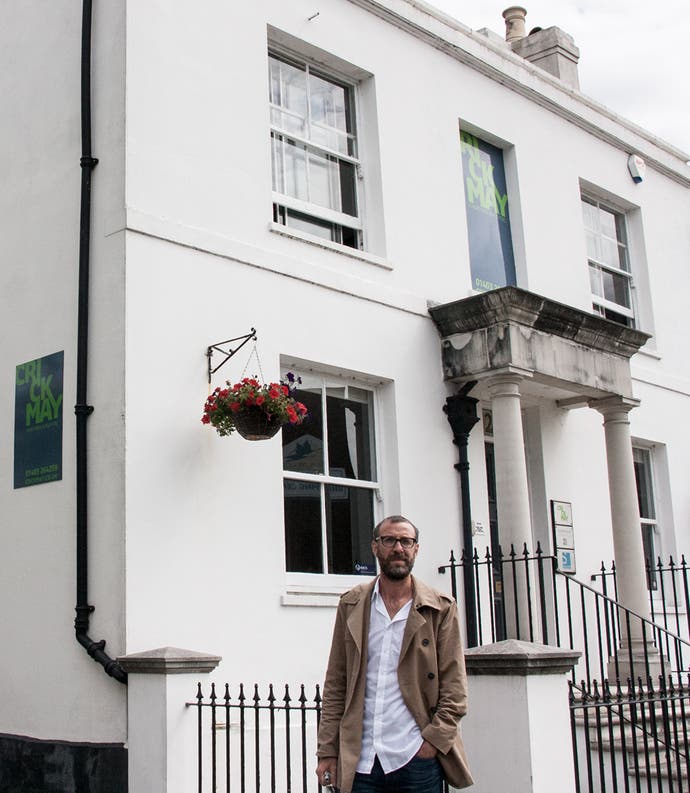
Companies sent couriers round to physically collect builds of games, which, well, provided a window of opportunity if you weren't quite finished. "The guy was knocking at the door and we were hiding, pretending we weren't in, because we were too embarrassed to go down and tell him 'actually we're not ready yet'," says Gratton.
Other times Creative Assembly had to actually drive a game up to the airport and put it on a plane. "I remember finishing one of the sports games and Michael de Plater [now director of design at Warner Bros. Games, working on Middle-earth: Shadow of War] drove the master to the airport to give it to some cabin crew to take to Singapore to get it duplicated it was that close to the deadline," says Mike Simpson. Remember him? I'll come back to him in a minute, I promise. "He fell asleep on the way back and crashed. He was alright."
Like small, young independent studios do, Creative Assembly worked fingers dangerously close to the bone. Gratton's "contiguous working" peak was turning up for work one Monday and not leaving again until Thursday afternoon, "without sleep". Simpson nods: "We'd do ridiculous things like that in order to get stuff done."
Which isn't to say they never had a little fun. "One of my amusing memories was we used to have this kettle..." Tim Ansell begins. "It was irritating. It was one of those things where if you wanted to make a cup of tea, you'd fill it up, switch it on, go and sit down and get on with some work, and you'd go back and find the bloody thing still wasn't on. It used to just piss me off so much I decided one day I'd teach it a lesson; a bit Basil Fawlty I decided this kettle had to die. So I took it outside and smashed it up with a brick."
It was just a joke! But the artist who started that day missed the memo. "Apparently it scared the shit out of this guy!" Ansell laughs.
Another time there was a bomb scare in Horsham because someone had parked a car outside an army careers office and run off. It was just a shopper escaping a telling off but back then the IRA was active so people panicked. Roads were cordoned off and police were sent to patrol - one just outside Creative Assembly's window, as it happened. A perfect time for a bit of mischief, thought Ansell.
"There was this policeman walking up and down outside the office window with his hands behind his back, like they do, and we were having a proper bloody laugh because I kept playing all these sound effects at full volume at him. I'd be playing sirens and explosions, all sorts of things, and we were just pissing ourselves laughing."
"It was just a fun place, really," he says. "When you start off it's just a bunch of mates who are working together. For years I used to go down the pub every lunchtime with Clive and play pool."
Mike Simpson joined Creative Assembly in 1996, when big changes were afoot. Creative Assembly was going to up-sticks entirely and move wholesale to Singapore. The government there was promising to match any company's investment, so if Creative Assembly invested £1 million, the government would too.
"We were pretty much ready to go," says Ansell. The company was registered and the plan to make a role-playing game to appeal to the Asian audience, a take on the classic Journey to the West story, was in hand. "But like all these things it's always worth taking a breath." He did. Hang on a minute, he thought, why are we going all the way to Singapore again? There were more reasons to stay than go.
The decision to stay set Creative Assembly on a path towards making the first Total War game, Shogun: Total War. Simpson led the team and planned a quick Command & Conquer clone because they were in fashion at the time. But when the team made a camera fly around a 3D battleground they knew something special had been found. A quarter of a ton of Chinese food - "we measured it," says Simpson - and many all-nighters later, Shogun: Total War was released, and the early days of Creative Assembly were all but over.
But the sports games hadn't stopped. This is something not a lot of people realise. The sports game business actually funded the creation of Total War. Tim Ansell was canny and didn't fancy the odds of betting the bank on an original game, to go "Monte Carlo or bust" as he puts it. So while Simpson and team made Shogun: Total War, another team made Cricket '99, Australian Football League '99 and Rugby World Cup '99 and paid the bills, paid to move into a new office, paid to buy a motion-capture rig.
As Creative Assembly and Total War grew, the sports team did not disappear. It became what is known today as Creative Assembly's console team, maker of Alien: Isolation and Halo Wars 2. The conversion from sports team to console team happened with Rugby World Cup on PS2; after that the team embarked on Spartan: Total Warrior, a game the team is still really fond of. They believe it would have done much better had it not "clashed spectacularly" with Sony's glitzy God of War, says Al Hope, who's creative director of console team. "And they had nudity."
The creation of Total War marks the end of the early days of Total War. By the time Shogun: Total War came out, Creative Assembly was edging the staff tipping point of around 50 people, where a company's culture begins to change. Someone had told Tim Ansell that once and he remembers thinking it was "pretty much bang on". "After that you can get tribalism where not everyone knows everyone and then because you don't know someone you think they're a bit of a cock," he says in his own inimitable way. By the time Medieval: Total War came out in 2002, Creative Assembly was 50 people; by the time Rome: Total War came out in 2004, it was 60 people. When Sega stepped in and bought Creative Assembly in 2005, it began to balloon. Creative Assembly has 500 people today.
Clive Gratton, Mike Simpson and Al Hope all sit before me in the big white meeting room, with nibbles in bowls including long thin chocolate Matchsticks I haven't seen in years. Mike Simpson is considered the godfather of the Total War series while Al Hope and Clive Gratton direct the console team in another building. But Tim Ansell isn't here. He is the glaring absentee when we talk about the studio's early years. I have to track him down and phone him up afterwards.
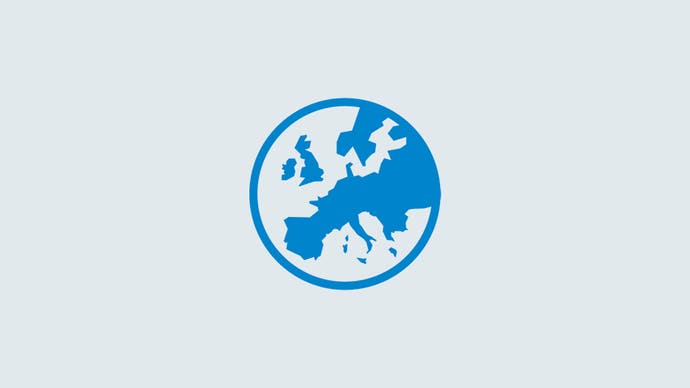
Ansell left Creative Assembly in 2006, six months after Sega took control, and it wasn't, he tells me, his choice. "I don't blame them at all for getting rid of me because at the time I was about as much use as a chocolate teapot. I was spent. I really was spent. I was in a very bad place. It was 18 years of my life and it was my entire life, you know what I mean? I'd been working fucking hard, under a lot of stress, for 18 years, and it just got stressier and stressier the bigger it got."
Creative Assembly had been three weeks from running out of money before Sega swooped in, it surprises me to hear. Ansell can't tell me why because he still fears nondisclosure agreements but the reason relates to a departure from Activision, a publisher Creative Assembly had worked with during the early noughties. "Shall we say they're not especially friendly," Ansell says. It was the straw that broke the camel's back.
"I was just so desperate for some time off. And I was stupid. The minute they bought us I... didn't turn up a lot to be honest with you. I missed my kids and I wanted to spend more time with my kids so quite a lot of days I just didn't turn up, which was obviously an outrageous way to behave, and obviously they'd have thought, 'Well what friggin use are you?'"
What needles him most now is thinking people thought he took the money and ran. "Fuck you lot, I'm off," as he puts it, "which is not the case at all". "It was actually quite upsetting to leave. It's one of the reasons I never went back, even to collect my stuff. I never went back in the office. All my personal stuff got put in a box and I never collected it."
Today Tim Ansell watches from the sidelines, from outside the industry, mostly playing golf. What he sees Creative Assembly doing isn't drastically different from what he was doing there 12 years ago. Even Warhammer, he says. "When I was there we spoke to Games Workshop, we talked about doing it before, back then. It's just that in those days Games Workshop thought they were the dog's nuts and we were still relatively small, so they were very full of themselves and stating their terms and we just couldn't work with them."
He played Rome 2: Total War but generally he doesn't have the time, or he gets a bit annoyed at the decisions they've made, or, more honestly, "I sometimes find it a little bit upsetting."
Five years ago when Creative Assembly celebrated its 25th birthday, no one seemed to mention his name, as if he had been written out of history. He says he's not bitter - "How could I possibly be bitter when the upshot of it was I was given enough money to live comfortably for the rest of my life?" - but he does feel frozen out.
Tim Ansell may not be in the room but he is not forgotten by Clive Gratton, Mike Simpson and Al Hope. The award-winning company they lead - the company Tim Ansell created and ran for 18 of the 30 years we're celebrating this year - unmistakably still bears his mark.
"A fool thinks himself to be wise, but a wise man knows himself to be a fool," says Gratton, reciting an old Ansell-ism.
It means "talk to people, ask questions, admit you don't know", explains Ansell. "It was okay to be wrong, it was okay not to know things - that was completely fine. I never balled anybody out for not knowing anything or making mistakes; it was only if they should have asked somebody and they didn't they'd get the sharp end of my tongue."
"That's enshrined," adds Simpson. "Your position in the hierarchy doesn't make you right."
"In my head we're really similar to how we used to be," adds Hope. "The spirit is the same."
This anniversary the work Tim Ansell did is remembered. "Give my regards to all the guys down there."
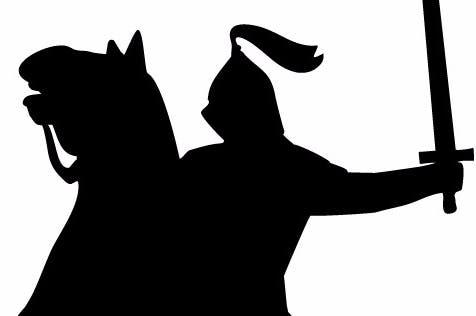






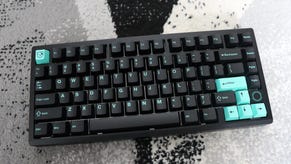

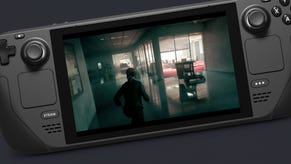
.jpg?width=291&height=164&fit=crop&quality=80&format=jpg&auto=webp)
_Rwmp6uD.jpg?width=291&height=164&fit=crop&quality=80&format=jpg&auto=webp)